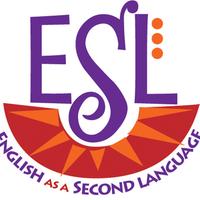Unit 63 The Report
||Отчёт
||Report
||o relatório
Referat 63 Der Bericht
Unidad 63 El informe
Unité 63 Le rapport
Unità 63 La relazione
ユニット 63 レポート
63 skyrius Ataskaita
Jednostka 63 Raport
Unidade 63 O relatório
Ünite 63 Rapor
Розділ 63 Звіт
单元 63 报告
單元 63 報告
B: I finished my report on the French Revolution last night.
||||отчет||||||
||finished||||||Revolution||
||terminei||||||Revolução||
||||报告||||革命||
||||||||Revolution||
||||||||革命||
|||||||francesa|revolución||
ب: أنهيت تقريري عن الثورة الفرنسية الليلة الماضية.
B: Ich habe gestern Abend meinen Bericht über die Französische Revolution fertiggestellt.
B: I finished my report on the French Revolution last night.
B:昨夜、フランス革命に関する報告を終えました。
B: Eu terminei meu relatório sobre a Revolução Francesa na noite passada.
Б: Вчера вечером я закончил свой доклад о Французской революции.
G: How did you finish it so fast?
|||||||быстро
G: كيف الانتهاء من ذلك بسرعة؟
G: Wie haben Sie es so schnell geschafft?
G:どうやってこんなに早く仕上げたの?
G: Как вам удалось закончить его так быстро?
I’m still trying to find books about it.
Я|||||книги||
Ich versuche immer noch, Bücher darüber zu finden.
I'm still trying to find books about it.
Sigo intentando encontrar libros sobre el tema.
私はまだそれについての本を探しています。
Ainda estou tentando encontrar livros sobre isso.
Я все еще пытаюсь найти книги об этом.
B: There was something about the French Revolution on TV last week.
|||что-то||||||||
|||etwas||||||||
B: Letzte Woche gab es etwas über die Französische Revolution im Fernsehen.
B: Houve algo sobre a Revolução Francesa na TV na semana passada.
Б: На прошлой неделе по телевизору показывали что-то про Французскую революцию.
B:上周电视上播出了一些有关法国大革命的节目。
I wrote down the names of all the people who were on the show.
Я|записал|записал||имена|||||которые|были|в шоу||
|||||||||||||Show
كتبت أسماء جميع الأشخاص الذين كانوا في العرض.
Ich habe die Namen aller Personen aufgeschrieben, die in der Show waren.
Escribí los nombres de todas las personas que estaban en el programa.
私はショーにいたすべての人々の名前を書き留めました。
Eu escrevi os nomes de todas as pessoas que estavam no programa.
Я записал имена всех людей, которые участвовали в шоу.
我写下了参加演出的所有人的名字。
G: What did you do next?
|что|||сделал|
G: Was hast du als nächstes gemacht?
G: O que você fez a seguir?
G: Что вы делали дальше?
G:接下来你做了什么?
B: I went to the library and looked for their books.
|||||библиотека||искал|за||
||ging|||||||ihre|
|||||library|||||
|||||图书馆|||||
B: Ich bin in die Bibliothek gegangen und habe nach ihren Büchern gesucht.
B: Fui a la biblioteca y busqué sus libros.
B: Fui à biblioteca e procurei seus livros.
Б: Я ходил в библиотеку и искал их книги.
It was very easy, especially because I already understood what they wanted to say.
||||||||понял|||||сказать
||||besonders||||verstand|||||
||||||||understood|||||
||||||||entendi|||||
Es war sehr einfach, vor allem, weil ich bereits verstanden hatte, was sie sagen wollten.
特に彼らが言いたいことをすでに理解していたので、それはとても簡単でした。
Foi muito fácil, principalmente porque eu já entendia o que eles queriam dizer.
Это было очень легко, тем более что я уже понимал, что они хотят сказать.
这非常容易,特别是因为我已经明白了他们想要说什么。
G: I guess I could have done that, but I missed the TV show.
||||||||||пропустил|||
||glaube||konnte|||||||||
||||||||||missed|||
||||||||||perdi|||
G: Ich denke, das hätte ich tun können, aber ich habe die Fernsehsendung verpasst.
G:できたと思うけど、テレビ番組を見逃した。
G: Acho que poderia ter feito isso, mas perdi o programa de TV.
G: Наверное, я мог бы это сделать, но я пропустил телепередачу.
Why did Ms.
||госпожа
Warum hat Ms.
どうして
Почему мисс.
Dessard make us write about French history, anyway?
Дессар|заставляет||||||
Dessard|||||||
Dessard|||||||
德萨尔|||||||
Dessard|||||||
デサール|||||||
Lässt Dessard uns überhaupt über französische Geschichte schreiben?
とにかく、Dessardはフランスの歴史について書いてくれますか?
Dessard nos faz escrever sobre a história da França, afinal?
Дессар заставляет нас писать об истории Франции?
无论如何,德萨尔都会让我们写法国历史吗?
She’s a French language teacher, not a history teacher.
Sie ist Französischlehrerin, keine Geschichtslehrerin.
Es profesora de francés, no de historia.
彼女は歴史の先生ではなく、フランス語の先生です。
Ela é professora de francês, não professora de história.
B: Ms.
Dessard said that if we want to understand the language, we should understand the culture.
||||||||||||||культуру
||||||||||||||culture
||||||||||||||cultura
||||||||||||||文化
Dessard sagte, wenn wir die Sprache verstehen wollen, müssen wir auch die Kultur verstehen.
Dessard disse que se queremos entender a língua, devemos entender a cultura.
Дессард сказал, что если мы хотим понять язык, то должны понять культуру.
I don’t know if I speak better French, but I know more about French history now.
|не||||||||||||||
Ich weiß nicht, ob ich besser Französisch spreche, aber ich weiß jetzt mehr über die französische Geschichte.
No sé si hablo mejor francés, pero ahora sé más de historia de Francia.
私がもっと上手にフランス語を話せるかどうかはわかりませんが、今ではフランスの歴史について詳しく知っています。
Не знаю, лучше ли я говорю по-французски, но теперь я больше знаю об истории Франции.
我不知道我的法语是否说得更好,但我现在对法国历史了解更多了。
If the French Revolution had never happened, French would be a very different language.
Если|определённый артикль|||бы не|||||||||
||Francesa|Revolução||nunca||||||||
Hätte es die Französische Revolution nicht gegeben, wäre das Französische eine ganz andere Sprache.
フランス革命が起こらなかった場合、フランス語は非常に異なる言語になります。
Se a Revolução Francesa nunca tivesse acontecido, o francês seria uma língua muito diferente.
Если бы Французская революция не произошла, французский язык был бы совсем другим.
G: You’re right.
G: Sie haben Recht.
G: Вы правы.
I’m going to talk to Ms.
Я|||||
Ich spreche mit Ms.
Я собираюсь поговорить с г-жой.
Dessard now.
德萨尔|
Dessard|
|сейчас
Dessard jetzt.
Дессард.
I’ll see you later.
я|||
Hasta luego.
また後でね
Увидимся позже.

